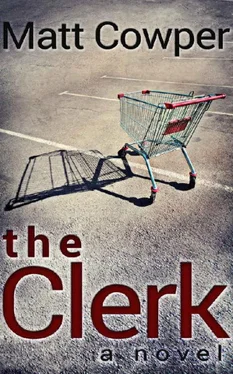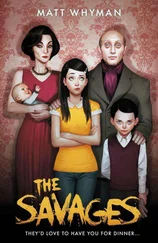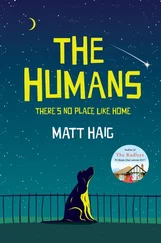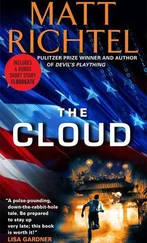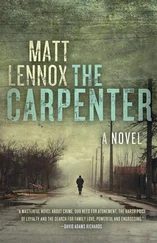“You and your damn beach walks.”
“Well, do you have any ideas?”
“Dunno.”
“Dunno,” Thomas mimicked.
“Hell, I know what we can do. Let’s drive up to Havelock and sneak into the air station. I think it’d be fun to create an international incident.”
“Two idiots from Morehead City sneaking into some random Marine base wouldn’t even make the local news.”
“I’d make it make the local news. If I beat up a few Marines and broke a helicopter windshield, I bet it’d get some attention. I can still take those jarheads, too. Well, not the real young ones, but the ones close to my age.”
“Sure you can.”
“I can.”
“How’d your last fight turn out?”
“Why, son, I hit some Master Staff Sergeant, sir, with the Hammer of God, sir, and he dropped like an anchor, sir.”
“Incredible. A trained killer, and you beat him easily.”
“Trained killer? They don’t teach those boys to do nothing but salute and shine shoes. Shit, there’s an ex-Marine working on the line at Clamshells, and he’s about as useful as a screen door on a submarine.”
“Well, anyway, as much as I enjoy watching you wear out your remote, how about we get out of this pig sty and do something?”
“OK, fine. Let’s get some lunch. Then we can go do whatever.”
“Where will we be dining, Mr. Willis?”
“Clamshells. I work there enough, I might as well spend my damn free time there too.”
“You just want to get the employee discount.”
“Well, of course.”
The rain-patter on his umbrella was soothing. It reminded him when rain had pelted the tent’s canopy during childhood camping trips with his mother and sister, bringing Nature even closer than it already was.
Thomas trudged along the shore, watching the raindrops make tiny depressions on the ocean. Rain makes it glassy, as the surfers said, and it was certainly true today. The waves weren’t big, but they broke crisply, like miniature waterfalls. He wished he could wade out there, just so he could duck under and listen to the rain splashing onto the ocean’s surface, but the water temperature was far too cold for that, unless he put on a wetsuit, which he didn’t own.
As expected, there was no one else on the beach. Were it summer, a few hardy tourists would have opened their beach umbrellas, pitched their circus-sized tents, or simply sat in their folding chairs with hats or towels on their heads or shoulders to ward off the rain. But it was winter, and the beach was deserted, and the rain had smoothed out the footprints of previous beach-walkers. Thomas felt tough and intrepid, as if he were actually walking through an uncharted wilderness instead of a beach dotted with endless cottages, hotels, and condos.
He kicked at a piece of driftwood, startling a nearby seagull that had been sitting quite comfortably on the sand. It squawked, flew a few dozen yards, then stood watching him.
“Sorry, buddy,” he said, smiling. The seagull’s head twitched as it regarded its surroundings, but its one squawk was apparently all it had to say.
Up ahead, the hulking limestone elegance known as The Villas at Indian Beach stood on the beachfront like an aristocrat who had stumbled into a trailer park. Its eight stories towered over the petty buildings around it. It grew in size as Thomas approached, and he found himself looking up at it quizzically, as he always did. He didn’t look at it with covetous anger, vowing to one day own one of its condos and show the moneyed elite he was worthy. Yes, it was nice, but why would someone live there? It was basically a large apartment building. Yes, the balconies looked formidable, and the windows looked like they kept out the weather, and he was sure the interiors were sumptuously designed, “a triumph of style and utility,” but it was still basically a large apartment building. With the money it took to buy one of its condos, Thomas could have bought any number of worthy houses on the mainland.
And he never saw anyone outside on those formidable balconies.
He continued on, passing by another set of condos. He didn’t know the name of this place, and perhaps it didn’t deserve a name when placed next to The Villas. Several excrement-brown, horseshoe shaped buildings lined the shore, their roofs dotted with rusty HVAC units. Once, people would have found these five-story buildings charming, but now, with The Villas looking down on them smugly, they were as desirable as cardboard boxes.
But Thomas always saw people outside on these balconies. Even today, in the rain, one older woman was leaning on her metal railing and peering out into the gray rain-speckled ocean. When she saw Thomas look in her direction, she threw up a quick wrist-flick of a wave. Thomas waved back.
He trudged on, thinking about Orianna. Intrigued by their teasing conversation on the day after his birthday, he’d approached her again a few days later. She was wiping down the conveyor belt on her checkout lane, her tiny biceps and triceps muscles rippling.
“How’s it going?” he asked.
She looked up at him. There was no cool warmth — just coolness.
“Good,” she said. “Yourself?”
“Just fine.”
She nodded and returned to her wiping. Thomas stood there, hands in his pockets, watching her pale arm swing back and forth. So it was like that , huh? He already wanted to walk away, but, after a long hesitation, he decided to try again. He didn’t want to talk about Cynthia again, so he’d prepared some conversational topics beforehand.
“Read any good books lately?” he asked. “From what I’ve seen and heard, you seem to be a pretty intellectual person.”
“Intellectual?” she said, frowning. “I don’t like that term. It’s pretentious. ‘Intellectual’ is reserved for those who’re college-educated and white collar. You never hear electricians or plumbers being called that, for example — or supermarket cashiers.”
“Uh, yeah, I agree with you there,” Thomas said, mildly annoyed. Why didn’t she just answer his question instead of nit-picking a word? No matter; he’d roll with it. “Well, then scrap ‘intellectual,’ replace it with ‘intelligent,’ or whatever word suits you — and I ask again, read any good books lately?”
She finally smiled her ghost smile. The paper towel she’d been using was now blackened and filthy, so she threw it into the small trashcan beneath the register, ripped off a new bunch of paper squares decorated with flowers and bumblebees, and doused them with Formula 409.
“I just finished The Fountainhead ,” she said. “It was good. Overblown, but I guess that gets the point across.”
“I’ve read it, but it’s been years ago,” Thomas said, desperately trying to recover some of the plot. There had been an architect named Howard Roark, fighting against Society’s crushing conformity. He had red hair. He dove off a cliff. He scoffed at a vacationing family, because a real man doesn’t need a vacation. But before he could settle on a theme to discuss, Orianna was speaking.
“You have?” she asked. “I mean, not doubting you, but it’s a book that’s kind of off the beaten path.”
“No, it’s not,” Thomas replied, perturbed. Did she think she was the only one who read Great Books? “It’s a well-known book.”
“Well, yeah, it is, in certain circles, but I mean in comparison to Harry Potter or Twilight , it’s invisible.”
“I agree, but some people do read other stuff besides whatever’s popular at the moment. I remember discussing The Fountainhead with Vernon and Eldridge when I first read it, for example.”
“That’s interesting,” Orianna said. “What did they think of it?”
Читать дальше
